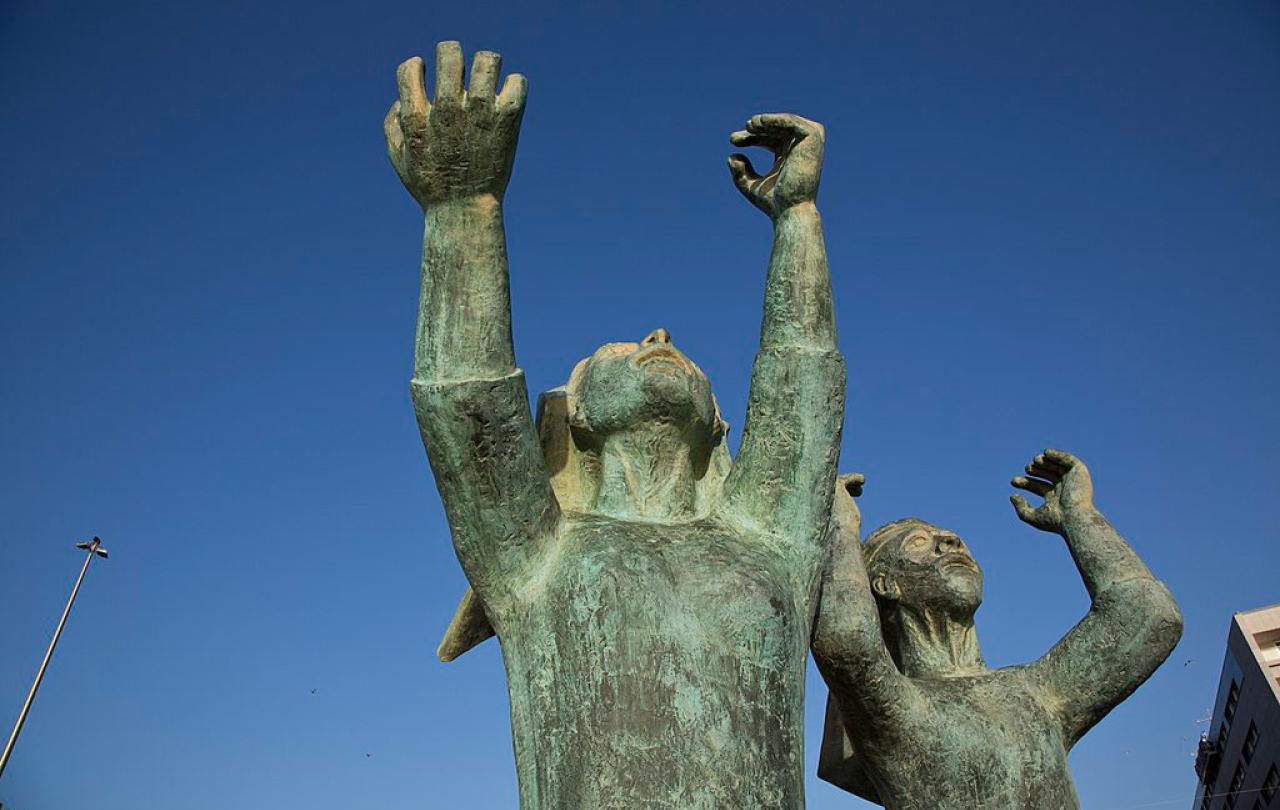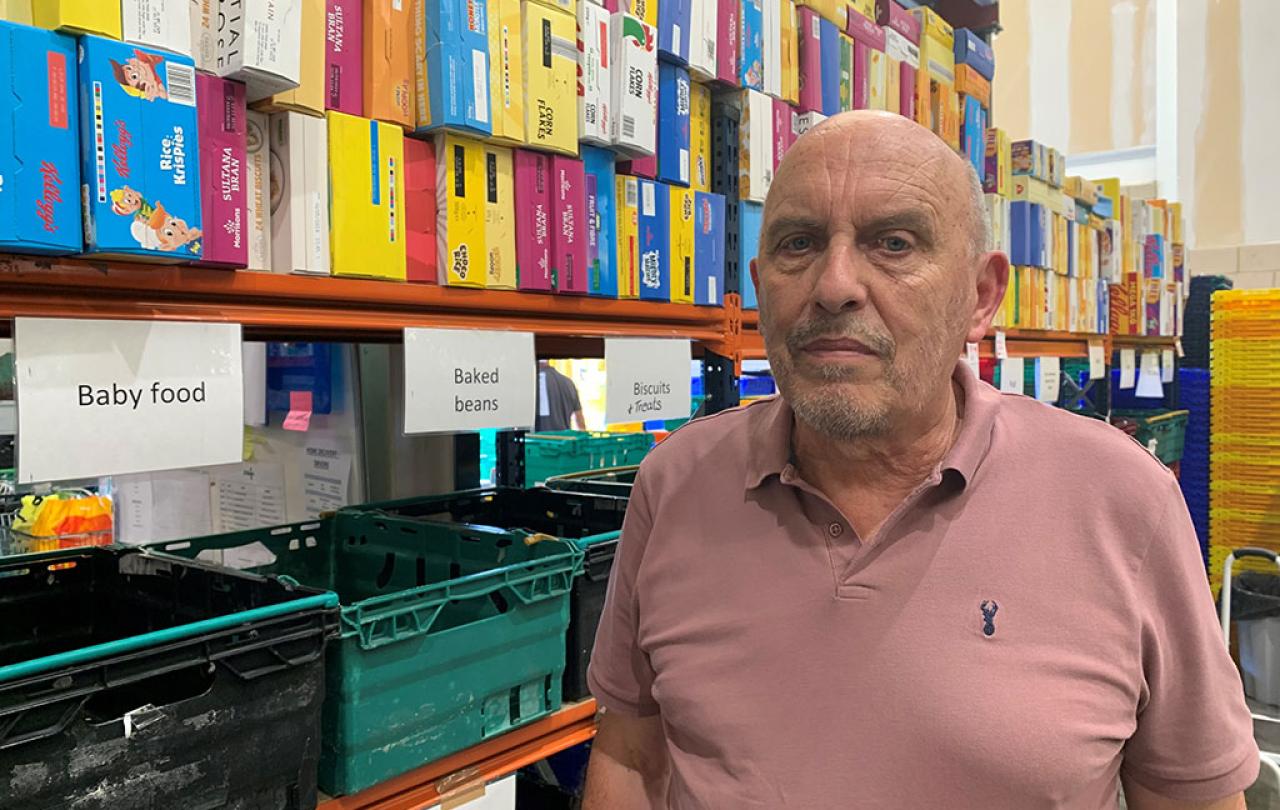
Widow’s Rip is a notorious swirl of ocean just offshore from Nazaré, a centuries-old fishing village on Portugal’s windy and unpredictable Atlantic coast. Decades ago fishermen used oxen to pull brightly painted boats onto the beach and then rowed into the giant waves. Many lost their lives when the seas were rough. I first visited Nazaré with my Portuguese grandmother as a child and stayed in a fisherwoman’s house with an orange-tiled roof just off the central square. My eyes had to adjust to the gloom every time we went inside as she kept all of the shutters drawn. Even though it was thirty degrees outside, I remember her tanned, crumpled face shrouded in a black shawl that covered her head and shoulders. She wore a black knee length skirt with an array of petticoats and black shoes. As a ten-year-old, I was a little scared. I asked my grandmother when the fisherwoman’s husband had died. “About twenty-five years ago at sea”, she said. She explained it would be a sign that you didn’t love your late husband if you didn’t wear black for the rest of your life.
Nowadays, although fishing is still a livelihood for some who live there, Nazaré is known for its sweeping beach and touristy promenade of restaurants, bars and stalls selling Portuguese wares. But the widows, now very old ladies, who lost their husbands to the sea all those years ago still potter around the town dressed head to toe in black. An ingrained tradition of how to grieve.
No other event in our life brings us closer to facing questions of mortality and eternity than the death of a loved one.
Grief and how we deal with the loss of a loved one is of course deeply personal and expressed differently depending on so many things; culture, beliefs, personality, life experience, to name a few. But in recent years, there has been a defined shift in British society away from some of the traditions that have historically accompanied death.
The growing trend for direct or “no fuss” cremations is an example of this shift, with a rise from 3 per cent of all cremations in 2019 to 18 per cent in 2022 according to a life insurance company’s recent report. A traditional cremation includes a service at the crematorium or place of worship beforehand, whereas a direct cremation does not have a service. Instead, the deceased is taken directly to be cremated with no one in attendance, unless witnesses ask to be present. A simple coffin is used, and the timing of the cremation is determined by the funeral director, usually according to availability.
Why are families choosing to cut out the funeral?
Sources point to a range of reasons. A matter of choice – perhaps a statement of faith that the afterlife is not about funeral rituals, or conversely, that there is no afterlife, and the body will just decompose organically and be subsumed back into the Earth so why make a fuss? It can be for practical reasons such as cost; traditional funeral services are much more expensive than a simple cremation, estimated to be approximately £2,500 cheaper. A “no fuss” cremation can also reduce the likelihood of family division or arguments over the type of ceremony. Or family living in different locations geographically means a memorial service scheduled for a more convenient time can be organised.
All these reasons seem perfectly valid. But not giving a formal space or process to say goodbye does feel like a seismic cultural shift, even for the British, known for our ability to keep our feelings under wraps. Practical reasons aside, are we ducking the emotion that inevitably hits us when we lose someone we love? Or perhaps avoiding the difficult questions that come with death? No other event in our life brings us closer to facing questions of mortality and eternity than the death of a loved one.
On holiday in Nazaré in his youth, my father remembers a fisherman’s death in the house where he was staying. The night before the funeral - with the deceased laid out in the dining room - each of the women in the family took it in turns to sit in the corridor outside, the top skirt of their seven petticoats over their head, wailing in an outpouring of grief so raw that they couldn’t continue for more than a couple of hours. The “wailing process” carried on throughout the night, the role passing from woman to woman until sunrise. Not only was the loss of the fisherman the loss of their beloved, it was also the loss of a working partnership - the women sold the fish that the men brought home – and the loss of the family’s livelihood and income. The wailing was a necessary part of expressing this agony ahead of the funeral service when the rest of the family would come together to support each other.
There are also intensely reverent traditions observed with death in Portugal, particularly within the Catholic church. The burial or cremation is usually no more than three days after the person has died. When my grandmother passed away a few years ago, her body was laid in an open casket in a room of the Catholic church in the mountain village in rural Portugal where she had lived most of her life. The night before the funeral, a procession of people visited her to pay their last respects, including distant family members, whilst my immediate family sat with her all night. People touched her arm or hand, and sat and chatted to one another. After Mass the following day, her coffin lined with lead was sealed and she was taken to the family Mausoleum to be laid beside my grandfather, along with the remains of around thirty of our relatives dating back to the early 1900s.
Brazil, where we lived for several years, has many similarities to Portugal in dealing with death. The time between death and burial or cremation is even faster, usually within twenty-four hours. Family and friends rapidly gather, usually together with the body of the loved one in an open casket. Touching and kissing the body and wailing over it is not uncommon. According to a Brazilian friend, “Bebendo do morto” which means “drinking to the dead” is an old custom where family members raise a final glass of Cachaça, a traditional drink, to the deceased in the presence of their body.
A funeral service is partly about taking a look back at our loved one’s jigsaw of life, at all the pieces that have slotted together to make up their precious and unique time on Earth.
In all these traditions, the funeral service acts as the closure to the first “phase” of grief, and the passing of the deceased into God’s care. The next phase is then the more private continuation of grief for months or years to come.
Christians believe in life after death based on a conviction that as Jesus rose from the dead, so will we. A funeral service is partly about taking a look back at our loved one’s jigsaw of life, at all the pieces that have slotted together to make up their precious and unique time on Earth. Of course, there are damaged and missing pieces, but Christians believe that the jigsaw will be made whole and perfect in Heaven with Jesus. It is also a chance to give thanks for the the life of a human being wonderfully and fearfully made in the image of God.
Regardless of the country, the culture or the tradition, the death of someone we love means that our world will never be the same again. It will continue spinning without them and we have to get used to that. The Book of Ecclesiastes in the Bible says:
“There is a time for everything, and a season for every activity under the heavens: a time to be born and a time to die”.
Death is an entire season; not only the end of the existence of a human on Earth who was created and loved by God, but a prolonged period of growth and change for those of us left behind.
Death deserves us to make a fuss.





